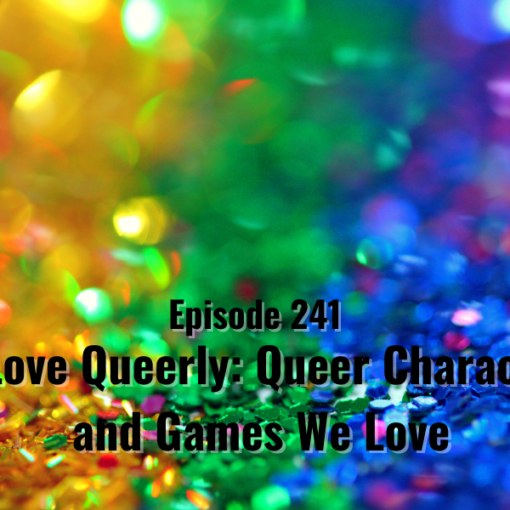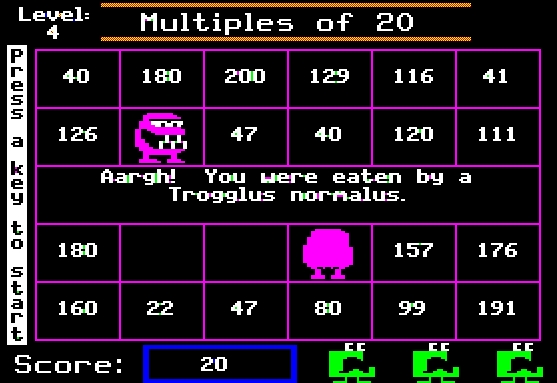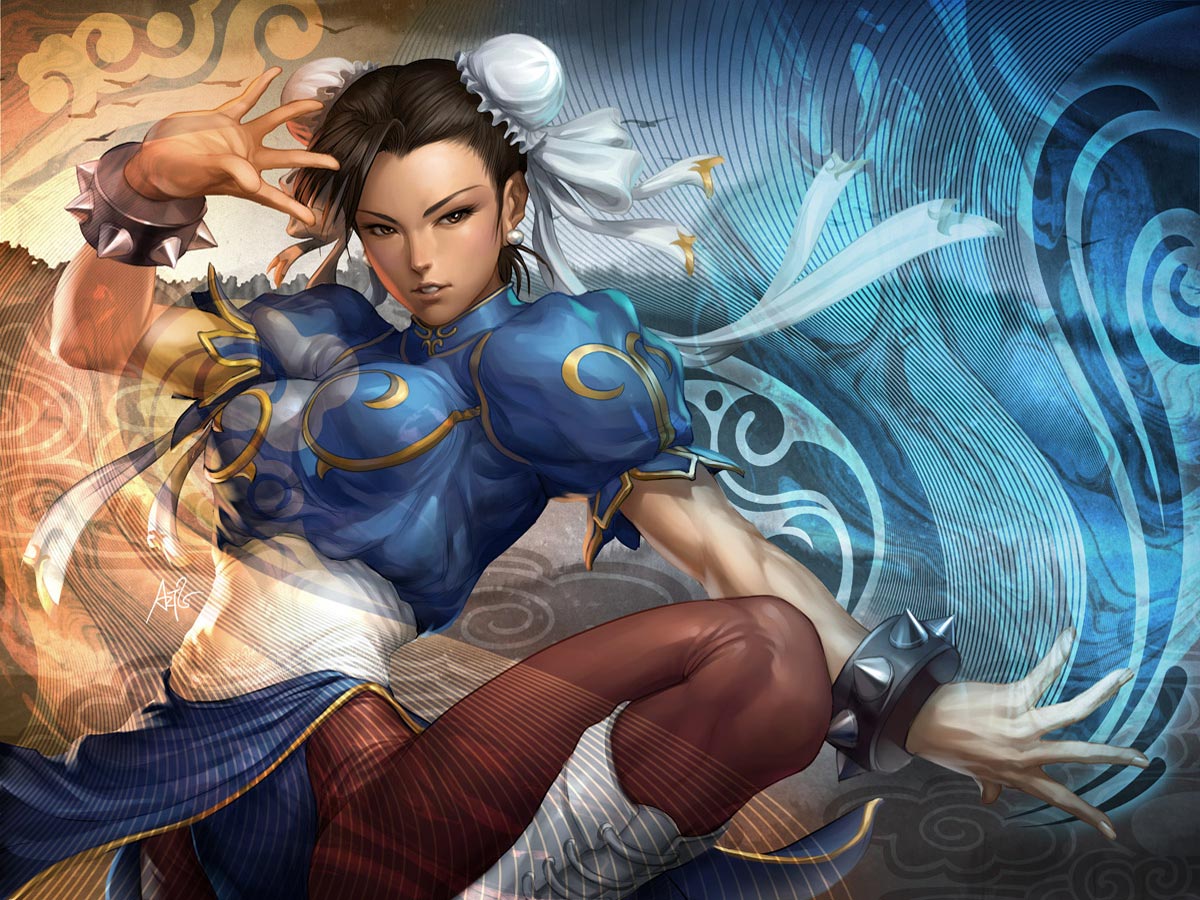What does it mean to be a gamer? This is a question I’ve been asking myself a lot lately. It’s one we’ve talked about here, since, as women, our “gamer cred” is often questioned, but when I ask what it means to be a gamer, I don’t mean hardcore gaming. I mean in the general sense, and more, why do we need an identifying term?
Gaming, for me, is a hobby, so I, like so many others, self-identify as a gamer. But my five-year-old son doesn’t self-identify as a gamer. My mother, who plays more games in a week on Facebook than I probably do in a year, doesn’t self-identify as a gamer. The legions of people plugging away at Candy Crush right now? Probably don’t call themselves gamers… and I’m starting to think they’re on to something.
I don’t really have a lot of hobbies, to be honest–not because I don’t enjoy anything, but because those things I do enjoy (reading, writing, cooking, playing games, parenting my children so they don’t turn into hooligans) tend to take a lot of time. I do call myself a writer, but that’s also because I am, on occasion, paid for my efforts. I am a parent because that is a biological, legal, and cultural fact. But I don’t call myself a reader; I say I enjoy reading, I say I read often, I say I own so many books that my husband has jokingly threatened to divorce me every time we’ve moved because he hates lugging book boxes. I don’t call myself a cook, either, because that connotes something I’m not: talented and professional. Listen, I said I enjoy cooking, not that I’m particularly great at it.
The more I began thinking about identifying as hobbyists, in fact, the more I realized there’s a bit of division in how we talk about our hobbies, and how we self-label. Every time I started to establish a set of criteria for self-labeling, it began to quickly fall apart. For instance, I thought at first that labeling might require a certain investment of funds to show dedication (carpentry, for instance, or painting, golfing or homebrewing; people dedicated to these interests often self-identify). But then I returned to cooking and reading, for me, and believe I have invested a great deal of money into these endeavors. And while “serious” gaming often requires a fair investment, I know a lot of people who own consoles who still wouldn’t call themselves gamers. Time also didn’t seem to be a factor. I know a lot of people who watch a great deal of television, but there doesn’t seem to be a catch-all term for that, and “buff” (as in movie buff or TV buff) carries a whole different connotation of its own, one that invokes vast knowledge of trivia or certain genres and styles. A more specialized dedication.
But why don’t we have a term for dedicated TV fans? Is it because Americans, on average, spend almost three hours a day watching television? Do we just assume everyone does it so it doesn’t need a term? Those numbers come from the Bureau of Labor Statistics, by the way; Nielsen says we’re watching 34 hours a week, and more as we get older. But the BLS stats are interesting, because they file television under simple leisure activities, along with sports and other recreation. They compare gaming instead to reading (I’d agree, though I’m curious if they did this for narrative purposes or with some real intent in mind; the text is inconclusive), and overall, we’re reading and playing a lot less than we’re watching TV.
So I loop back around to this again: why do we have a term for gamers, but not one for TV watchers? I thought perhaps shame and defensiveness might be the answer. We’re only just beginning to break out of the image of the basement-dwelling neckbeard covered with Cheeto dust, after all, as the paragon gamer, so it stands to reason that at times we’d be shifty-eyed, denying the hours we spend, controller or mouse clutched in hand.
Because this question has been tickling the edges of my brain, I’ve been doing a lot of reading and searching and while there’s scholarly work on the topic of identification, I find myself more interested in, well, us (at least for now). You know, gamers/people who play games, and so I’ve been reading old forum posts from here and there, blogs, discussions, etc., and I am not alone in these questions. One story in particular from the Escapist forums caught my eye:
Gaming, at least to people of a certain [age], has become virtually ubiquitous – like reading books or watching television. Everyone does it. While back in the 90s calling yourself a “gamer” might have meant identifying with part of a subculture, these days “I play video games” is tantamount to saying “I use the internet”. Or, “I breathe air and drink water”. “Gamer” must necessarily mean something other than “has played any video games at all” because it is fast becoming interchangeable with “human being on the planet Earth”.
There’s more to this post, and the thread, and it’s worth reading. I felt really drawn to this discussion, obviously, because it’s the very one I’ve been having with myself. The discussion goes on to address whether “gamer” means anything any longer, or if we should try to end the casual vs. hardcore debate (good luck with that), so that we can welcome everyone into the fold, even our mothers (hi, mom! How’s Farmville?) in order to be gamers, all. Does it matter that we aren’t all quite the same? I don’t know.
I would agree that the word “gamer” doesn’t mean much any longer, and that debates amongst the hobbyists about who gets to claim the term are interesting, but I do find the notion of people rejecting the term more fascinating. What have we “gamers” done to scare off the rest of the population? Is it because we have told them, once or twice, that they aren’t real gamers unless they’ve played a certain list of games? Is there a rubber stamp? (There’s not; there must not be, since we ladies are still trying to earn it, despite our epic cred.)
I do think, however, that the mention of gaming in the 90s versus gaming today in that above-referenced post is worth exploring, though, because we are all changing. Gaming is becoming more ubiquitous, sure. When I think of the division between gamers and non-gamers, I remember playing hours and hours of the original Legend of Zelda with my father. My father, who played the Orange Box on my couch between cancer treatments, my father who dabbled in casual games until his death last year. My father would have never called himself a gamer, yet my earliest memories of gaming are tied up with him. My father, who was a “gamer” if anyone was, but he played before we were first slapped with the label, and then didn’t play enough after we reclaimed it. And there, I think, is the line; we were called geeks and dorks and nerds, and we reclaimed all the labels until “geekery” became as ubiquitous as smartphones and, well, gaming.
So when we will stop demanding to be identified?





5 thoughts on “And You’re a Gamer, Too”
As a woman, I identify myself as a gamer because I want the gaming companies to stop claiming I don’t exist and I don’t matter. I am a biracial professional woman, and I love games. I love the Sims, Left 4 Dead, XCOM, Harvest Moons, Crusader Kings, Guild Wars, Final Fantasy, Skyrims, Borderlands 2 and Marios of the industry… and a number of these developers keep telling me that I don’t matter, that there are not enough of me to care about. That’s why I am demand to be identified because I refuse to be invisible.
Tanya, I think that’s a valid point. We do need to be more visible, and we need developers to understand that they don’t have to dumb down content for women, or even target us specifically, in many cases.
But… (because there’s always a but, isn’t there?) is that working? Are we being recognized? Do they see us? Maybe there’s another way. I can’t say I know what it is, though I wish I did.